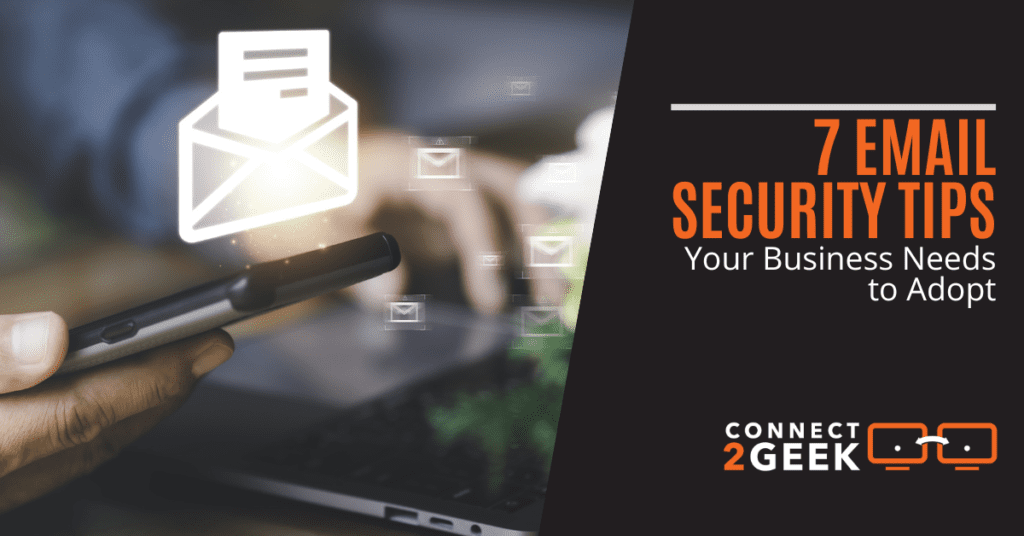
Since almost every business uses emails to exchange important and confidential information, emails have become one of the primary subjects of attack by cybercriminals.
In 2020, the Internet Crime Complaints Center (IC3) recorded about 19,369 business email compromise complaints, leading to over $1.8 billion in losses. This proves the need for every business to be meticulous about email security. Cybercriminals take advantage of email networks’ vulnerabilities through spam emails, phishing scams, and business email compromises. They steal sensitive data by sending corrupted emails to infect computers and networks
Email security involves protecting individual and business email systems against malware, spoofing phishing, and other attacks. Business owners are justified in adopting extraordinary security measures because business email is highly sensitive and has high stakes if a security breach happens. This article offers insights on email security tips you should adopt for your business.
Security Practices to Prevent an Email Breach
Whether you use an email network to communicate, share files, or schedule projects, you should regularly follow email security procedures to safeguard your business or personal emails from hackers, fraudsters, and other cyber criminals. Below are vital security tips you should consider:
Use Secure Email Hosting
One of the most essential elements of business email security is the use of a managed email hosting provider. When using commercial email hosting, you can rely on the security expertise of the provider to put security precautions like server firewalls and intrusion detection in place.
Avoid Mixing Accounts
Use separate accounts for personal and business activities. Avoid mixing accounts and using personal email accounts for professional emails or vice versa.
Mixing accounts increases the risk of having sensitive business data compromised. An attacker might initially target a personal account and then find more useful business information on the account.
Create a business email account strictly for the organization and ensure that employees comply strictly with the policy. For example, they should not use personal accounts for business purposes or business mail accounts for personal communications.
Create Strong Password
Most times, cyber criminals access systems by guessing and obtaining a user’s password. This, however, happens when you set a hackable password. The easier a password is, the worse the email’s security will be.
When creating a business email account, ensure you use strong and secure passwords. Make it long, with a combination of upper and lower case letters, and use a mix of different characters and numbers. The longer and more complex your password is, the more difficult it is to get hacked.
Avoid using personal information that can be easily guessed as a password. Information such as your name, date of birth, business name, name of loved ones, etc. can easily be guessed.
Configure Two-factor Authentication
Two-factor authentication adds another layer of defense that protects your data from hackers. The additional layer of security provided can stop hackers from accessing your organization’s data even if your credentials have been hacked or stolen.
When two-factor authentication is enabled, the user receives a code after inputting their password, typically through text message or email and their login can only be complete with the code. Any unauthorized user would not gain access without the code.
Email Authentication
Email authentication is one of the best ways to guarantee email security. The authentication method makes use of cryptographic standards and protocols to enable you to confirm the legitimacy of a sender.
The following will help you verify the authenticity of a sender:
- Sender Policy Framework (SPF)
- Domain Key Identified Mail (DKIM)
- Domain-based Message Authentication Reporting and Conformance (DMARC)
Don’t Open Untrusted Attachments
Email attachments are one of the easiest ways to install malware into your system to steal your data and obstruct the operations of your system. Opening an attachment automatically downloads it to your computer. The attachments which appear as zip files or pdf files may contain malware.
To avoid being a victim, open only attachments from users you trust that conform to your expectations of what an attachment should look like. Call the sender of the attachment if you have any doubts and ask them to confirm its contents.
Train your Employees
Hackers look for and take advantage of human emotions and reactions to phishing messages. Ensure that all employees are trained to prevent security attacks, identify phishing signs, and report suspicious emails.
Get Help and Advice to Secure Your Business Email
The team of experts at Connect2Geek can help you with data recovery, virus removal, email security, and more.
To connect with us, call 208-468-4323 or contact us online.
